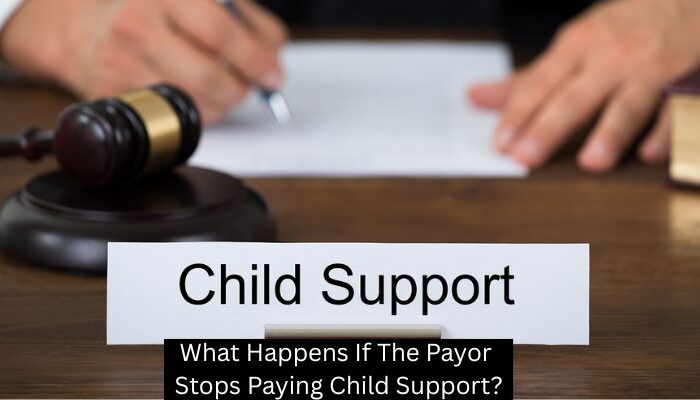
Criminal trials can be confusing and complex. A Criminal trial means the court process that an individual has to go through when charged with a crime.
The mechanism of criminal trial differs from province to province in Canada. This blog post will articulate the essential components of a criminal trial in Ontario.
The Basic Outline Of A Criminal Trial In Canada
Before jumping into the discussion of how a criminal trial works in Ontario, here are a few core constituents of a criminal trial:
| Arrest | When a person is charged with a crime |
| First Appearance | This is the starting point of a criminal trial where the defendant gets to know about his/her case and the available options in the trial process. |
| Pre-trials and Pre-motions | Before an actual trial takes place, pre-trial happens and the matter in question is being discussed at this stage. A pre-motion needs to be made before the trial starts. These are requests made by the Crown and your attorney requiring to do something. |
| Trial and verdict | When all formalities all completed, the trial begin. At the end of a trial, a verdict is announced on the matter. |
Now, let’s look at the process in detail:
- Arrest and Detention
Whenever an individual is accused of a crime, he/she can be arrested or detained. It is pertinent to note that an arrest and detention are two separate things. Arrest means when you are formally charged with a crime while detention means the police can detain you for the purpose of questioning without actually arresting you.
Under Canadian constitutional law, an accused who is arrested or detained has certain legal rights. The accused has the right to know the charges that are brought against him/her. Also, they have the right to hire a defense counsel of their choice.
- Release Options
After being arrested, the accused may be released by the police keeping in view the severity of the charge. Under the Criminal Code of Canada, the release is given by Appearance Notice (Form 9), Undertaking (Form 10), and Release Order (Form 11). Forms 9 and 10 are basically a promise that an accused will appear on the set-out date and time in the court. Form 11 compels the accused to adhere to the conditions set out by police, for instance; to reside at a specific place, abstain from meeting certain people, etc.
In addition, bail hearings are another way of securing a release from the custody phase. Bail means release from police custody unless the trial takes place. A bail hearing rolls in after 24 hours of an individual’s arrest. If bail is granted, that means you are under a financial commitment and you need to pay the settled amount of money to stay out of custody.
First Phase: Pre-Trial
- Disclosure of evidence and First Appearances
Under Canadian criminal law, the right of disclosure is given to the accused which tells them what evidence is going to be used against them in court. The disclosure has to be made before the first appearance takes place.
If the evidence is succinct and it is believed that the case cannot proceed, then charges are dropped immediately. In case of the absence of disclosure, the matter may be adjourned until a complete disclosure is submitted.
At this stage, the accused can plead guilty or not guilty. If you plead not guilty, then the case will proceed. During the pre-trial preparation, your lawyer will try communicating with the prosecution lawyer in finding ways to resolve the case without proceeding to a trial.
- Crown Pre-Trial or Crown Resolution
During the pre-trial phase, your lawyer negotiates with the crown in order to avoid getting that far down the road. This is typically called “Crown Pre-Trial meetings or Crown Resolution discussions.” Your lawyer may work on formulating a plea bargain through which you can be punished with a lesser sentence than the actual sentence.
- Preliminary Inquiry Cases
It is similar to a pre-trial but here the assessment of guilt or innocence of an accused is not in question rather the court focuses on if there is enough evidence to proceed the case to a trial. It is imperative to note that only cases of indictable offenses with severe maximum sentences under the Canadian Criminal Code are eligible for a preliminary inquiry.
As mentioned earlier, right of disclosure is given to the accused, but here the accused even gets to hear from the witnesses and the witnesses can be cross-examined by the defense. If the judge proclaims that there is sufficient evidence, then the accused will have a trial in the superior court.
In the entire span of a pre-trial phase, several court appearances might need to be made by you or your lawyer. Typically, the pre-trial can last from 2 to 6 months and in complex cases, it usually lasts between 9 to 12 months.
Second Phase: Criminal Trial
After the completion of the pre-trial phase, for example, in a domestic assault case, you are released on bail. After taking into account of disclosure evidence, your lawyer will think what is the possible plea deal after all the negotiations that he/she has done with the crown. Let’s say in this case, a peace bond is not on offer which you want and if you choose to proceed to trial then it means you have entered into the second phase of a criminal trial.
There is no such anticipated length of a trial. The time span of a trial depends on the seriousness and complexity of the cases. After the pre-trial, a date is issued for your trial.
- Hearings and examination of witnesses
The trial begins with the hearing. The hearing is started off by the crown. On your first day of trial, the prosecution witnesses are called first. Then, the defense side calls it witnesses and the accused can testify as well. After hearing the witnesses, the jury decides if the case is proven beyond a reasonable doubt or not by the prosecution.
- Verdict and Sentencing
After the conclusion of a trial, the court announces a verdict. The accused can be declared guilty, or not guilty, or a verdict of stayed charges can be announced.
After the announcement of the verdict, the sentencing will take place. If the accused is not guilty, then he/she gets an acquittal. If an accused is guilty of an offence, then he may be sentenced to jail time, probation or conditional sentence depending on the nature of offence. Last but not the least, an appeal can also be made against conviction or sentence.
Contact The Lawyers At Ayaz Mehdi Professional Corporation
Never forget that you are presumed innocent under the Canadian Criminal Code until proven guilty. If you require assistance pertaining to any criminal matter, you can reach out to the criminal defense lawyers at Ayaz Mehdi Professional Corporation.
Disclaimer: Kindly note that sending or receiving information through this site does not establish a solicitor-client relationship. Legal matters are fact-specific, and the law is variably changing. The views expressed and the content provided on this blog are general guidelines and cannot substitute for proper legal advice. Schedule your legal consultation by clicking here: Let’s meet!




